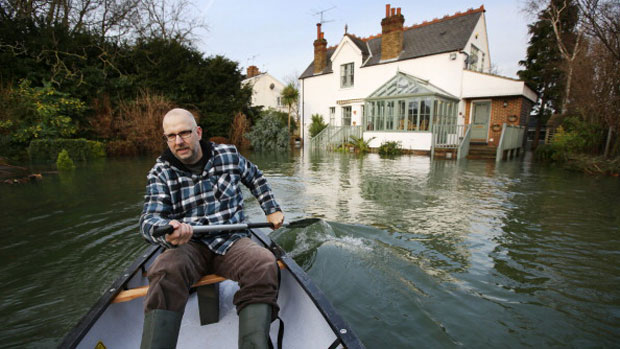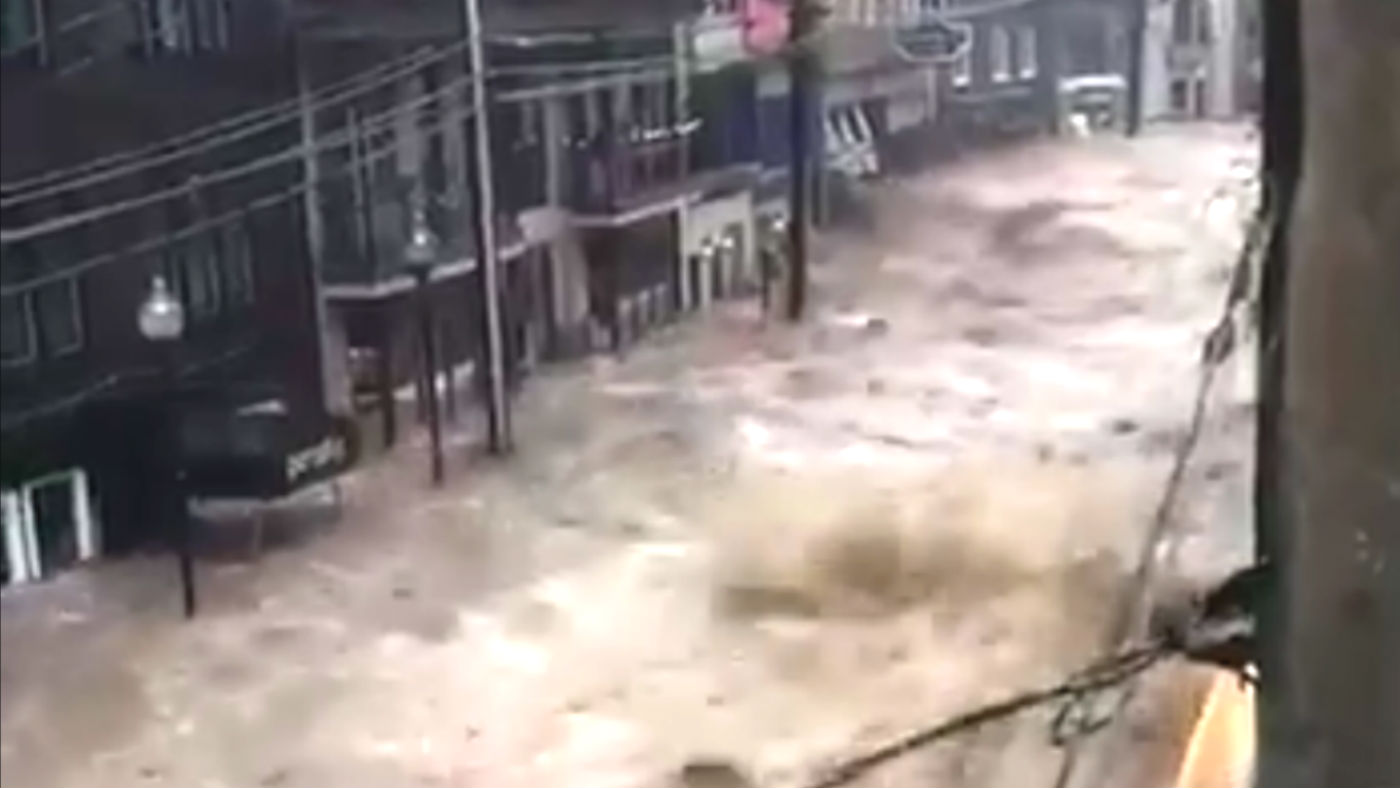Flood prevention: deal imminent for new homes
Four-year standoff betweeen developers, authorities and environmentalists may be coming to an end

A free daily email with the biggest news stories of the day – and the best features from TheWeek.com
You are now subscribed
Your newsletter sign-up was successful
A FOUR-YEAR standoff between developers and authorities, over rules designed to prevent new housing projects from exacerbating the effects of flooding, appears to be a step closer to a resolution today. But what are the rules, why are they contentious and what form will a deal take? Here are five key questions:
What caused the standoff?
Building policy has been "paralysed" since the Flood Act of 2010 was written into law, says the BBC. The act requires developers to landscape their projects so that rain water collects in "ponds and grassy hollows" or seeps into open ground rather than rushing into the drainage system.
The Week
Escape your echo chamber. Get the facts behind the news, plus analysis from multiple perspectives.

Sign up for The Week's Free Newsletters
From our morning news briefing to a weekly Good News Newsletter, get the best of The Week delivered directly to your inbox.
From our morning news briefing to a weekly Good News Newsletter, get the best of The Week delivered directly to your inbox.
Detailed rules governing the implementation of the act are being drawn up by the Department for Environment, Food and Rural Affairs (Defra). But the governance has been repeatedly delayed by two factors. Firstly, a standoff between developers and environmentalists on the best way to ensure run-off doesn't contribute to flooding. And, secondly, by the £500 million budget cuts at Defra and the resulting staff reshuffles which have cause bureaucratic delays.
Why are developers unhappy?
It all comes down to money. Developers argue that allocating valuable building land to ponds and the like will drive up the cost of the housing, make homes less affordable and projects less viable from a commercial perspective.
What do the developers propose?
A free daily email with the biggest news stories of the day – and the best features from TheWeek.com
They want some "flexibility" under the terms of the Act, the BBC says. For example, they suggest run-off could be captured using giant underground tanks, an approach that would free-up more land for development.
What's wrong with that proposal?
Well, according to technical experts, the tanks are an inferior solution compared to "surface features" such as ponds. Drainage expert Paul Shaffer tells the BBC: "There are much greater benefits if you capture water on the surface".
He adds: "It's a simpler solution that's easier to maintain; you get pollutants broken down free of charge by vegetation, you get amenity value that improves people's quality of life, you help to improve biodiversity." Surface features also help to cool down the surrounding land during heatwaves, Shaffer says.
So, has the standoff been solved?
Not exactly. There is still "deadlock" over the land allocation issue, but the BBC understands that an important deal has been reached over who pays to maintain any new "anti-flood landscape features".
Under the terms of the deal, councils will be able to charge the owners of new homes for the maintenance of anti-flood landscaping. The councils believe that’s a fair solution because the owners of established homes have to pay to have their run-off treated by water firms through the sewerage system.
-
 Political cartoons for February 22
Political cartoons for February 22Cartoons Sunday’s political cartoons include Black history month, bloodsuckers, and more
-
 The mystery of flight MH370
The mystery of flight MH370The Explainer In 2014, the passenger plane vanished without trace. Twelve years on, a new operation is under way to find the wreckage of the doomed airliner
-
 5 royally funny cartoons about the former prince Andrew’s arrest
5 royally funny cartoons about the former prince Andrew’s arrestCartoons Artists take on falling from grace, kingly manners, and more
-
 Glacial outburst flooding in Juneau destroys homes
Glacial outburst flooding in Juneau destroys homesSpeed Read
-
 Ukraine blames Russia for destroying major hydroelectric dam 'in panic' as counteroffensive starts
Ukraine blames Russia for destroying major hydroelectric dam 'in panic' as counteroffensive startsSpeed Read
-
 How bad are this year's Mississippi River floods?
How bad are this year's Mississippi River floods?Speed Read "Everybody's plan along the river has been put to the test"
-
 ‘A change in grading could be a timely and useful way for the government to ‘reset’ A-levels’
‘A change in grading could be a timely and useful way for the government to ‘reset’ A-levels’Instant Opinion Your digest of analysis and commentary from the British and international press
-
 ‘Geronimo the alpaca is irresistibly cute - hence the public outcry’
‘Geronimo the alpaca is irresistibly cute - hence the public outcry’Instant Opinion Your digest of analysis and commentary from the British and international press
-
 ‘The ‘party elite’ designed the rules - and alongside them the get-out clauses’
‘The ‘party elite’ designed the rules - and alongside them the get-out clauses’Instant Opinion Your digest of analysis and commentary from the British and international press
-
 Instant Opinion: men ‘getting away with murder’ using ‘rough sex defence’
Instant Opinion: men ‘getting away with murder’ using ‘rough sex defence’In Depth Your guide to the best columns and commentary on Friday 15 November
-
 VIDEO: ‘Once in a millennium’ flood ravages Maryland town
VIDEO: ‘Once in a millennium’ flood ravages Maryland townSpeed Read National Guardsman missing after being swept away by rushing water in Ellicott City